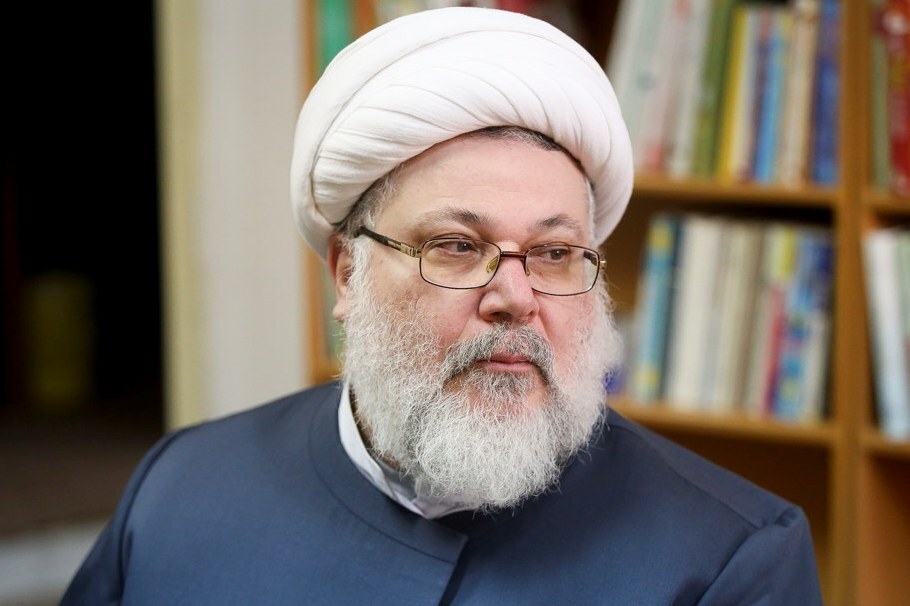AhlulBayt News Agency: Martyr Motahhari believed that resistance originates in the moral principle of dignity, a Lebanese scholar said.
Hojat-ol-Islam Shafiq Jaradi, director of the Religious and Philosophical Studies Center in Lebanon, made the remark in an address to an online seminar on ‘Palestine in the thoughts of Martyr Morteza Motahhari’.
The International Quran News Agency organized the webinar on Wednesday morning, marking the anniversary of the martyrdom of the great Muslim figure.
Hojat-ol-Islam Jaradi said that according to Martyr Motahhari, the objective of the entire ethical system in Islam is creation of dignity and he thus establishes ethics on the basis of dignity and honor.
He believed that in the Islamic society, resistance has roots in dignity, which is the first principle in Islamic ethical system, Jaradi stated.
He said dignity is also the basis for the power system mentioned by late founder of the Islamic Republic of Iran Imam Khomeini (RA) and it has also been emphasized by the Leader of the Islamic Revolution Ayatollah Seyed Ali Khamenei.
He added that Islamic ethics is a spiritual power that eliminates anything that stands in the way of man reaching dignity.
One must confront tyranny so that with dignity he can move toward a spirituality that would lead him to God, he stated.
Elsewhere in his remarks, Jaradi described Martyr Motahhari as a great thinker and a revolutionary figure who played a major role in creation and development of the Islamic system in Iran.
Lebanese scholar Talal al-Atrisi, Iraqi university professor Sattar Qassim Abdullah, Bahraini thinker Yaseen Fadhl al-Musawi, and Ali Motahhari, the son of Martyr Motahhari also addressed the seminar.
Morteza Motahhari was an Iranian Twelver Shia scholar, philosopher, and lecturer. He was a disciple of Allameh Tabatabai and Imam Khomeini and a co-founder of the Combatant Clergy Association. The scholar was assassinated in 1979.
Motahhari wrote or lectured on various topics related to Islam, Iran, and history, such as Islamic philosophy, theology, ethics, jurisprudence, Quranic commentary, biography of the Prophet Muhammad (PBUH) and the Imams (AS), and the event of Ashura. He also analyzed contemporary issues such as Marxism, Westernization, women's rights, and Islamic revivalism.
/129
Hojat-ol-Islam Shafiq Jaradi, director of the Religious and Philosophical Studies Center in Lebanon, made the remark in an address to an online seminar on ‘Palestine in the thoughts of Martyr Morteza Motahhari’.
The International Quran News Agency organized the webinar on Wednesday morning, marking the anniversary of the martyrdom of the great Muslim figure.
Hojat-ol-Islam Jaradi said that according to Martyr Motahhari, the objective of the entire ethical system in Islam is creation of dignity and he thus establishes ethics on the basis of dignity and honor.
He believed that in the Islamic society, resistance has roots in dignity, which is the first principle in Islamic ethical system, Jaradi stated.
He said dignity is also the basis for the power system mentioned by late founder of the Islamic Republic of Iran Imam Khomeini (RA) and it has also been emphasized by the Leader of the Islamic Revolution Ayatollah Seyed Ali Khamenei.
He added that Islamic ethics is a spiritual power that eliminates anything that stands in the way of man reaching dignity.
One must confront tyranny so that with dignity he can move toward a spirituality that would lead him to God, he stated.
Elsewhere in his remarks, Jaradi described Martyr Motahhari as a great thinker and a revolutionary figure who played a major role in creation and development of the Islamic system in Iran.
Lebanese scholar Talal al-Atrisi, Iraqi university professor Sattar Qassim Abdullah, Bahraini thinker Yaseen Fadhl al-Musawi, and Ali Motahhari, the son of Martyr Motahhari also addressed the seminar.
Morteza Motahhari was an Iranian Twelver Shia scholar, philosopher, and lecturer. He was a disciple of Allameh Tabatabai and Imam Khomeini and a co-founder of the Combatant Clergy Association. The scholar was assassinated in 1979.
Motahhari wrote or lectured on various topics related to Islam, Iran, and history, such as Islamic philosophy, theology, ethics, jurisprudence, Quranic commentary, biography of the Prophet Muhammad (PBUH) and the Imams (AS), and the event of Ashura. He also analyzed contemporary issues such as Marxism, Westernization, women's rights, and Islamic revivalism.
/129

